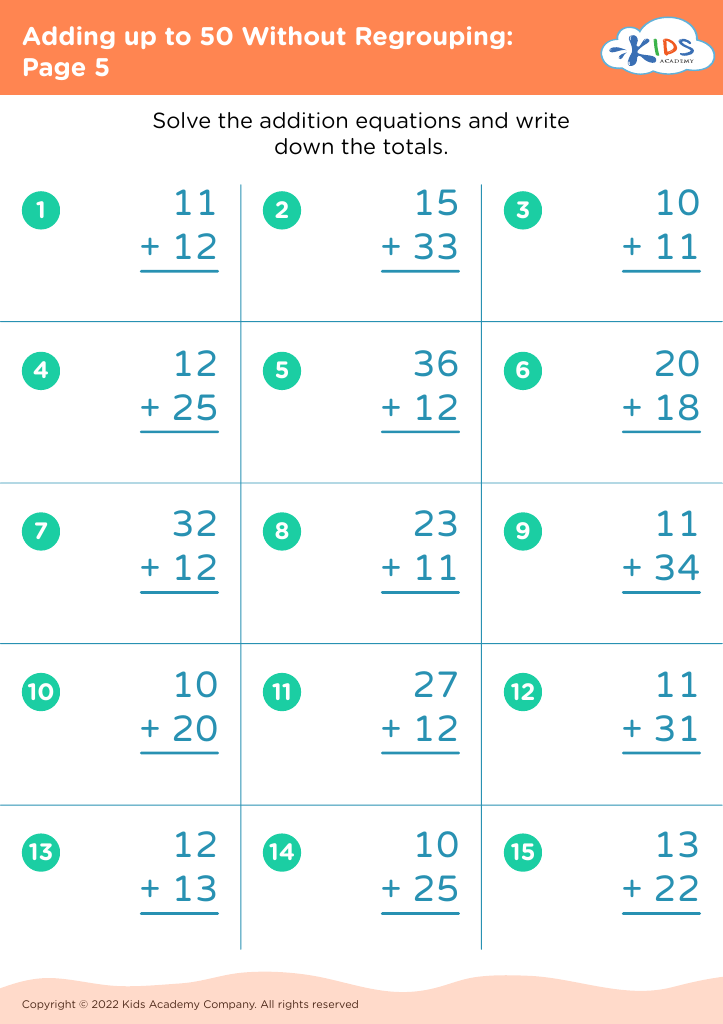Basic subtraction Worksheets for Ages 6-7
11 filtered results
-
From - To
Discover our engaging Basic Subtraction Worksheets designed specifically for children aged 6-7! These interactive worksheets provide a fun and effective way for young learners to grasp essential subtraction skills. Utilizing colorful visuals and relatable themes, our resources will keep kids motivated while they practice subtracting numbers. Each worksheet focuses on building a strong foundation in math, reinforcing their understanding of subtraction concepts through hands-on activities. Perfect for use at home or in the classroom, our worksheets are ideal for helping children develop confidence and proficiency in basic math. Start your child's journey towards mathematical fluency today with our printable subtraction worksheets!
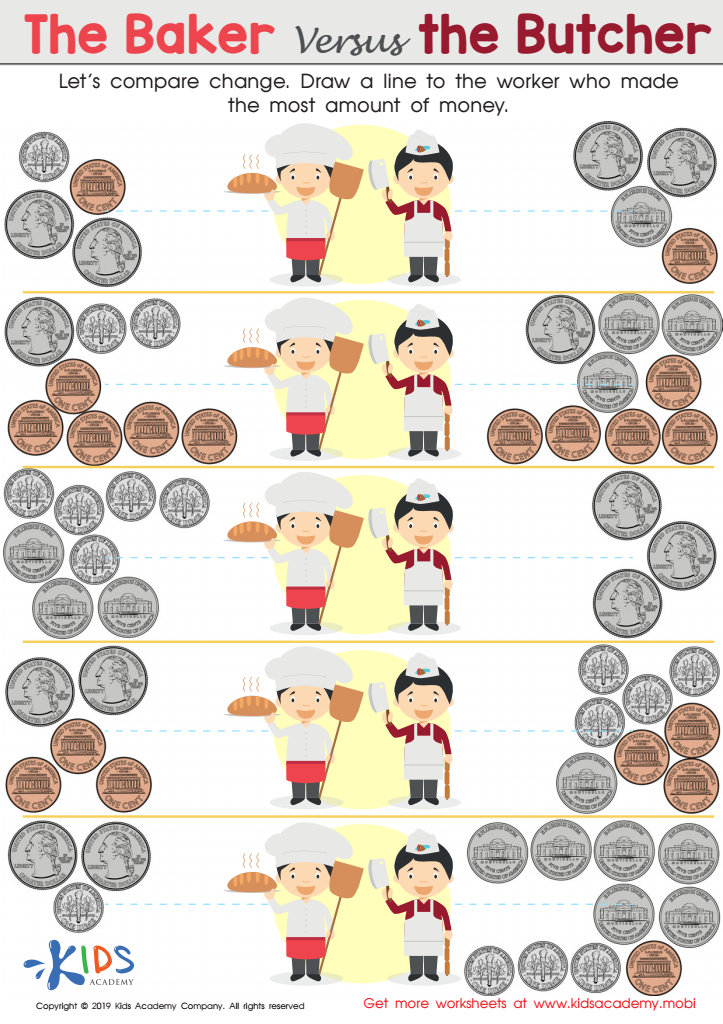

The Baker versus the Butcher Worksheet
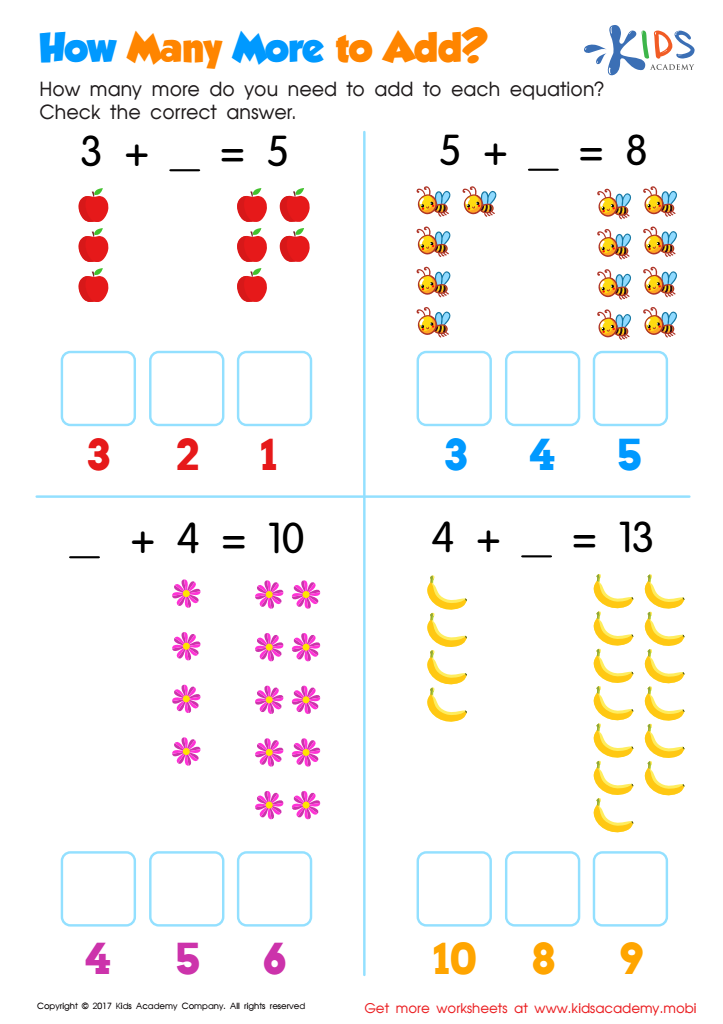

How Many More to Add Worksheet
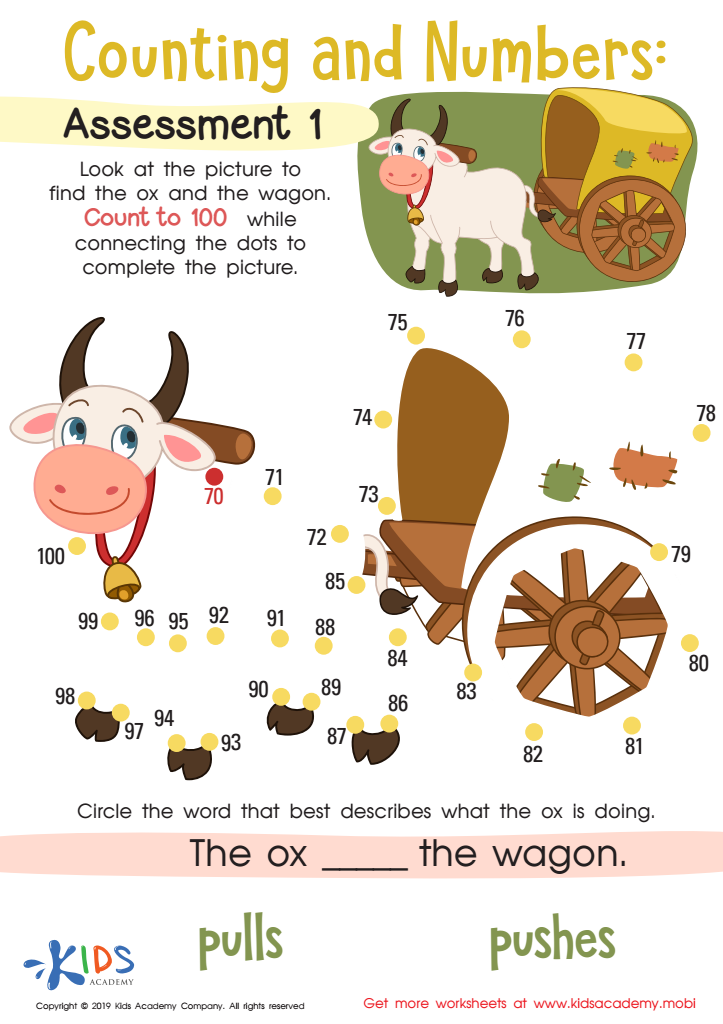

Counting and Numbers: Assessment 1 Worksheet
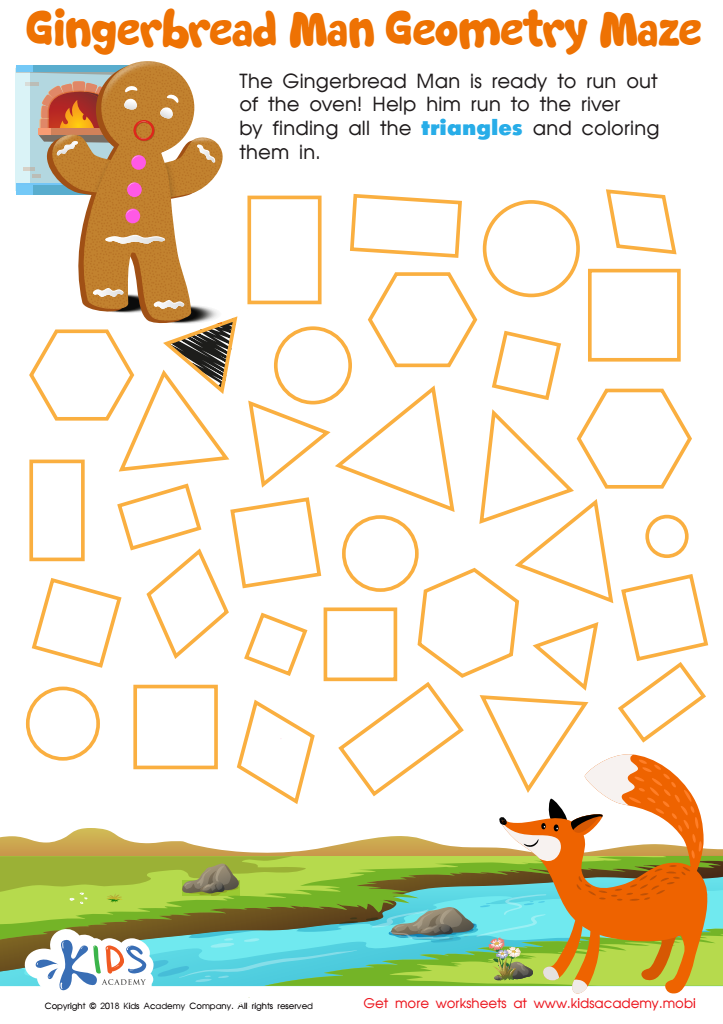

Gingerbread Man Geometry Maze Worksheet
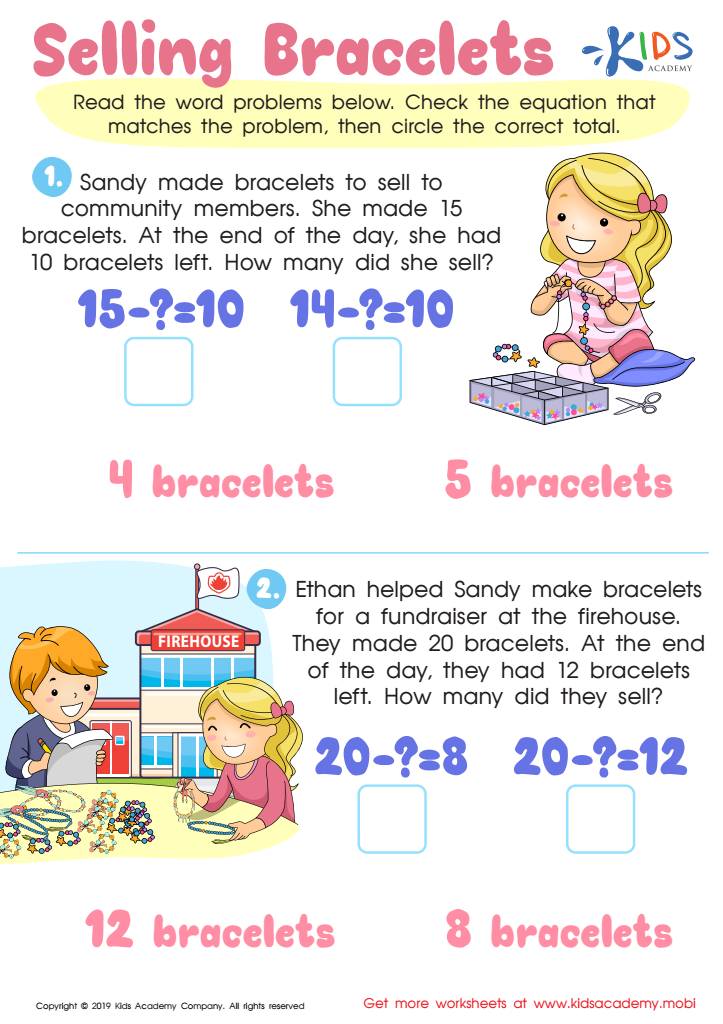

Selling the Bracelets Worksheet
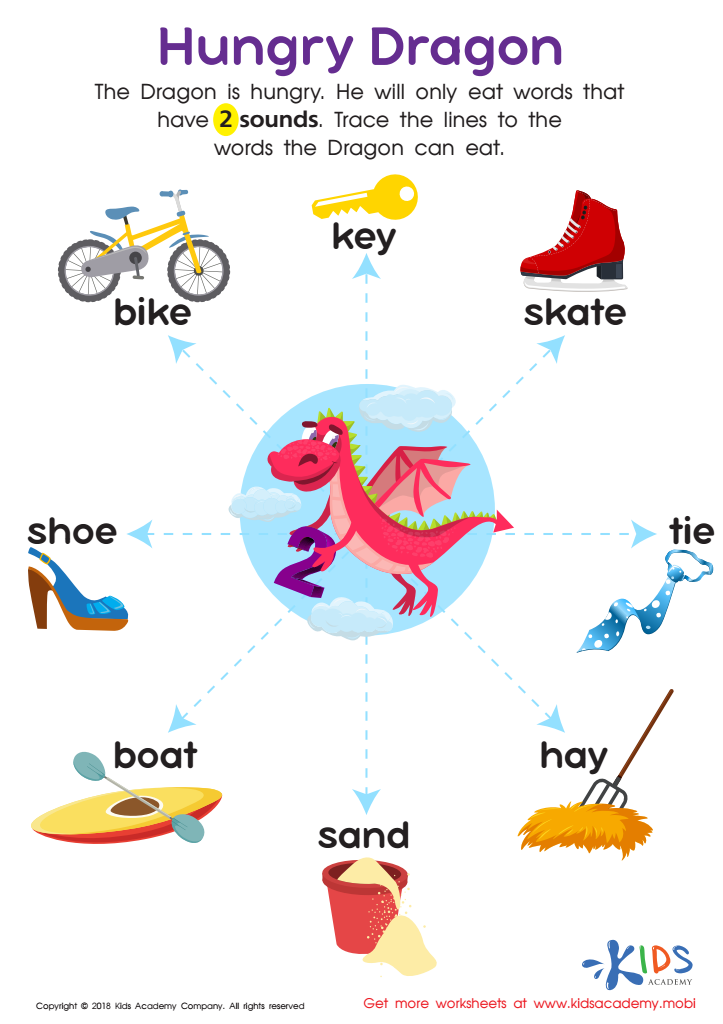

Hungry Dragon Worksheet
Basic subtraction is a fundamental skill that serves as a building block for future mathematical learning, making it crucial for parents and teachers to prioritize its development in children ages 6-7. At this age, students begin to grasp the concept of numbers more fully, and understanding subtraction helps them develop critical thinking and problem-solving abilities.
Knowing how to subtract cultivates number sense, which is essential for everyday situations, such as managing finances or measuring distances. Mastery of basic subtraction lays the groundwork for more complex math concepts like addition, multiplication, and division.
Moreover, learning subtraction nurtures confidence in young learners. When children successfully solve subtraction problems, they feel a sense of accomplishment that encourages them to tackle more challenging concepts. It also encourages perseverance, as they learn to approach problems from different angles when faced with difficulties.
In addition, parental involvement and teacher instruction in subtraction provide a supportive learning environment. Collaborative efforts in reinforcing these skills at home and school can ensure children have a strong mathematical foundation. By valuing basic subtraction, parents and teachers foster both academic growth and an enduring appreciation for mathematics in young learners.

 Assign to My Students
Assign to My Students

